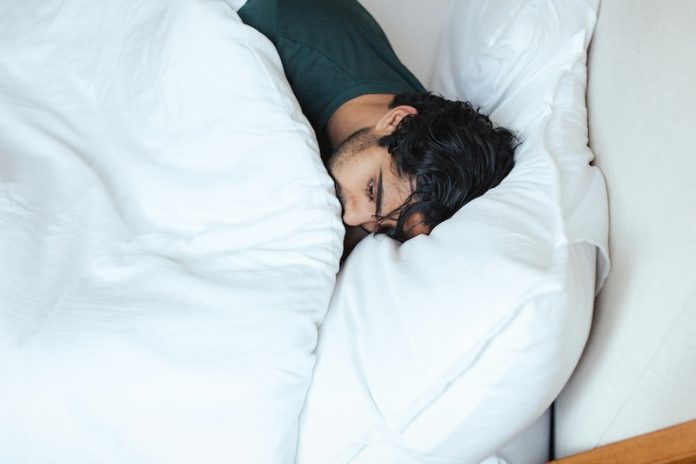
A new study led by researchers at UT Health San Antonio suggests that sleeping too much might not be good for your brain, especially if you have depression.
The study found that people who sleep nine or more hours per night tend to perform worse on thinking and memory tests. This effect was even stronger in people who showed signs of depression.
The findings are based on data from 1,853 adults who are part of the long-running Framingham Heart Study, which follows the health of residents in Framingham, Massachusetts. None of the participants had dementia or a history of stroke. The average age of participants in this analysis was about 50.
“People who slept longer were more likely to report feeling depressed,” said Vanessa Young, the lead author of the study. “This suggests that sleep might be something we can improve to help protect the brain, especially in people with depression.”
The study, published April 21 in Alzheimer’s & Dementia: The Journal of the Alzheimer’s Association, was a collaboration between scientists from several institutions including Arizona State University, Boston University, and Monash University in Australia.
The researchers looked at how sleep habits were related to overall thinking ability and specific skills like memory, problem-solving, and visual-spatial skills.
They found that sleeping too long—but not too short—was linked to lower performance on these tests. These effects were especially strong in people with depression, regardless of whether or not they were taking antidepressants.
According to Dr. Sudha Seshadri, senior author and director of the Glenn Biggs Institute at UT Health San Antonio, “Sleep is important for a healthy brain, but getting too much of it may not be helpful, particularly for people with depression.”
This study adds to growing evidence that both too little and too much sleep can be harmful to brain health. The Global Council on Brain Health recommends that adults aim for 7 to 8 hours of sleep per night. Too much or too little sleep has been linked to problems with memory, attention, and the ability to make decisions or manage tasks.
Depression often goes hand-in-hand with sleep problems. In fact, around 90% of people with depression report trouble sleeping. In this study, the researchers separated participants into four groups based on whether they had symptoms of depression and whether they were taking antidepressants.
They found that long sleep was linked to poorer thinking skills, especially in people with depression — whether or not they were using medication. Those who were taking antidepressants but did not have depression symptoms did not show this link.
The researchers say more studies are needed to understand how sleep and depression interact to affect brain function over time. They hope that future research can help identify ways to prevent memory loss and support brain health in people at risk.
If you care about mental health, please read studies about how dairy foods may influence depression risk, and 6 foods you can eat to improve mental health.
For more mental health information, please see recent studies about top foods to tame your stress, and Omega-3 fats may help reduce depression.
The study is published in Alzheimer’s & Dementia.
Copyright © 2025 Knowridge Science Report. All rights reserved.



